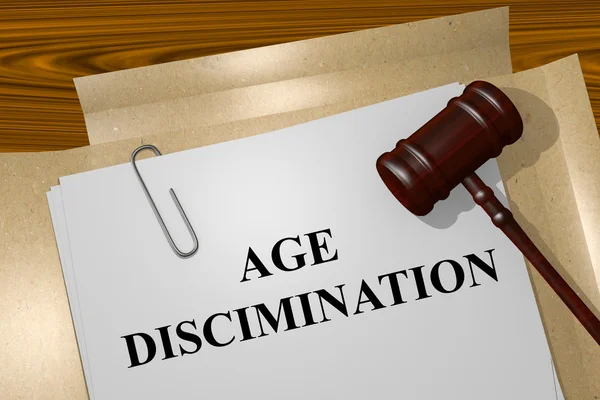Navigating the criminal justice system can be a challenging experience, particularly when you’re uncertain about the type of legal representation you need. Drawing from insights provided by Mitch Cozad, an experienced criminal defense attorney, this article will discuss the key differences between public defenders and private attorneys. Please note that this article is neither legal advice nor promotional material but aims to offer a better understanding of both options.
Contents
Client Eligibility
Public defenders are appointed to those who cannot afford a private attorney. A financial affidavit is reviewed, which documents the individual’s financial situation, to determine eligibility for a public defender. On the other hand, private attorneys cater to clients who can afford their services, with fees varying based on factors such as experience and case complexity.
Attorney Selection
With a public defender, you don’t get to choose who represents you. An attorney is assigned to you, and you’re expected to work with them. In contrast, hiring a private attorney allows you to select someone based on their expertise, reputation, and compatibility with your case.
Tip: When selecting a private attorney, consider their area of expertise, track record, and communication style to ensure they’re a good fit for your needs.
Communication and Accessibility
A significant difference between public defenders and private attorneys is communication and availability. Public defenders often take on multiple cases, which can limit their availability for communication. This may result in brief conversations during court appearances, with limited opportunities for detailed discussions. Private attorneys, however, can regulate their caseloads and typically offer more personalized communication and better accessibility.
Expertise and Specialization
Both public defenders and private attorneys are experienced in criminal law, but private attorneys often have the opportunity to specialize in specific areas, such as drug offenses or white-collar crimes. This specialization may be beneficial if your case requires a nuanced understanding of a particular legal domain. However, Public defenders typically have more general knowledge of criminal law and court procedures than private attorneys do because they are in the courtroom every day and on trial every week. Public defenders are considered the “battle axes of the courtroom.”
Battle Axes of the Court Room
The term “battle axes of the courtroom” is often used to describe public defenders because of their reputation for being tough and tenacious advocates for their clients. Public defenders are known for their willingness to fight hard for their clients, even when the odds are stacked against them. There are several reasons why public defenders have earned this reputation:
Heavy caseloads: Public defenders are often responsible for handling a large number of cases at any given time. This can be challenging, as they must balance the needs of each client with the demands of their workload. However, this also means that public defenders have a wealth of experience and knowledge that they can draw upon in the courtroom.
Experience: Public defenders are experienced attorneys who have spent years honing their skills in criminal law. They have a deep understanding of the criminal justice system and know how to navigate the complexities of the courtroom.
Passion: Public defenders are often motivated by a deep sense of passion and commitment to their clients. They understand that their clients are often facing serious consequences and are dedicated to doing everything in their power to protect their rights and defend their interests.
Underdog mentality: Public defenders often represent clients who are disadvantaged or marginalized, such as those who are low-income, minority, or facing serious charges. This can give them an underdog mentality and a fierce determination to fight for justice on behalf of their clients.
Overall, public defenders are known for being dedicated, hard-working, and passionate advocates for their clients. They are willing to go to great lengths to ensure that their clients receive a fair trial and a just outcome in court.
Resources and Support
Public defenders have access to better resources and support in some cases because they are part of a larger criminal defense system, which is funded by the government. This system provides public defenders with several advantages that private attorneys may not have, including:
Funding: Public defenders are funded by the government, which means they have a steady source of income and resources. This funding allows public defender offices to hire staff, such as investigators and support staff, who can assist with cases.
Expertise: Public defender offices often have a team of lawyers with specialized expertise in different areas of criminal law. This allows public defenders to consult with colleagues on difficult legal issues and collaborate on cases to develop the strongest possible defense.
Access to information: Public defenders have access to government databases, court records, and other resources that may not be available to private attorneys. This can be a significant advantage in building a strong defense.
Courtroom experience: Public defenders have extensive courtroom experience, as they are often in court on a daily basis. This experience can be valuable in navigating the court system and presenting a persuasive case to the judge or jury.
Social support: Public defenders often work in a supportive environment where they can exchange ideas and support each other. This social support can be beneficial in maintaining high levels of motivation and morale.
However, it’s important to note that private attorneys may have advantages over public defenders in other areas, such as the ability to choose their clients and the level of control that they have over their cases. The quality of resources and support available to public defenders can also vary depending on the location and budget of the public defender’s office.
Results
Public defenders often handle a large caseload and may not have as much time to devote to each individual case as a private attorney would. This can impact the quality of representation and the amount of attention given to a case. Private attorneys often have more control over their cases and may work closely with their clients to develop a defense strategy. This can lead to a more collaborative approach and a greater sense of investment from the client.
While public defenders are typically experienced attorneys, private attorneys may have more specialized knowledge or experience in a particular area of criminal law. According to a study of over 5,200 cases, defendants represented by private attorneys tend to receive shorter jail sentences compared to those represented by public defenders. A private attorney’s personal stake in the outcome of a case can lead to better results, as their success directly impacts their business.
Overall, the results of a criminal case can vary based on a variety of factors, including the specific circumstances of the case, the quality of representation, and the resources available to the defense. While public defenders and private attorneys both have their advantages, the quality of representation may ultimately depend on the individual lawyer and the specific details of the case.
The key differences between public defenders and private attorneys lie in client eligibility, attorney selection, communication and accessibility, expertise and specialization, access to resources, and results. It’s crucial to consider these factors when deciding on legal representation for your case. This article serves as general information, and if you’re in need of legal representation, consult a qualified attorney to discuss your specific situation and options.





